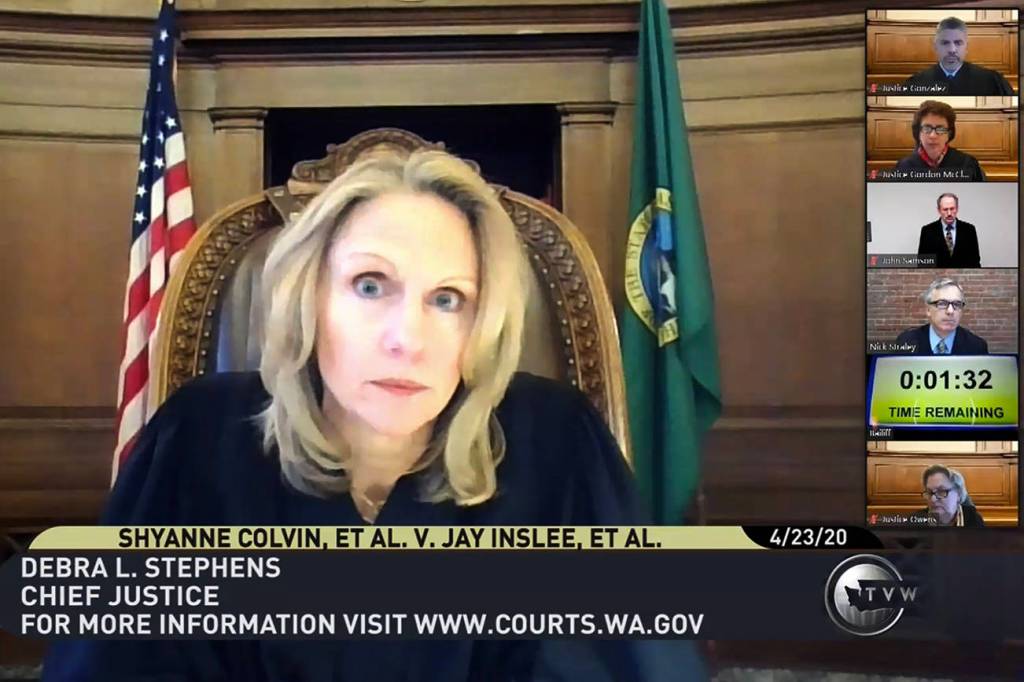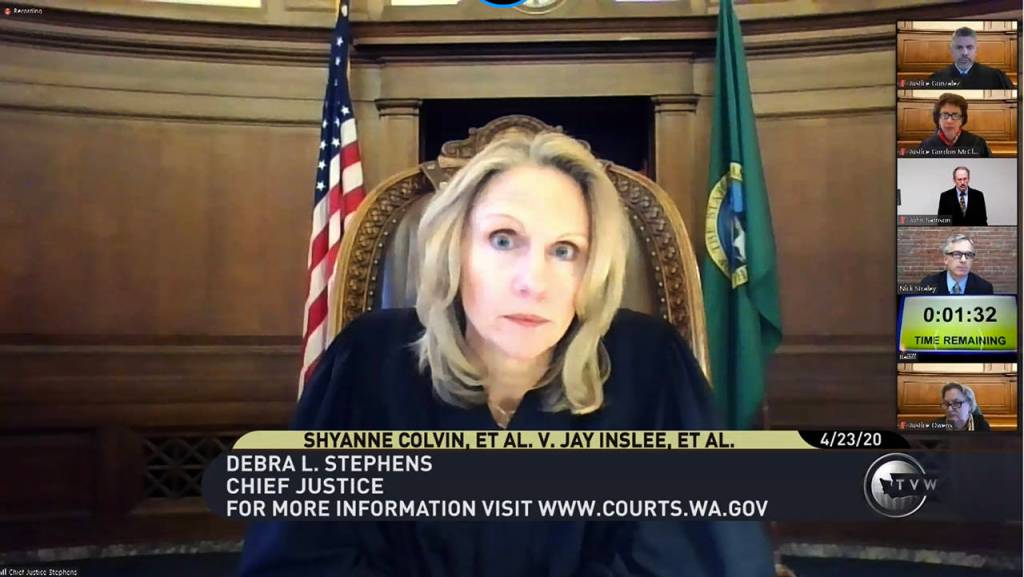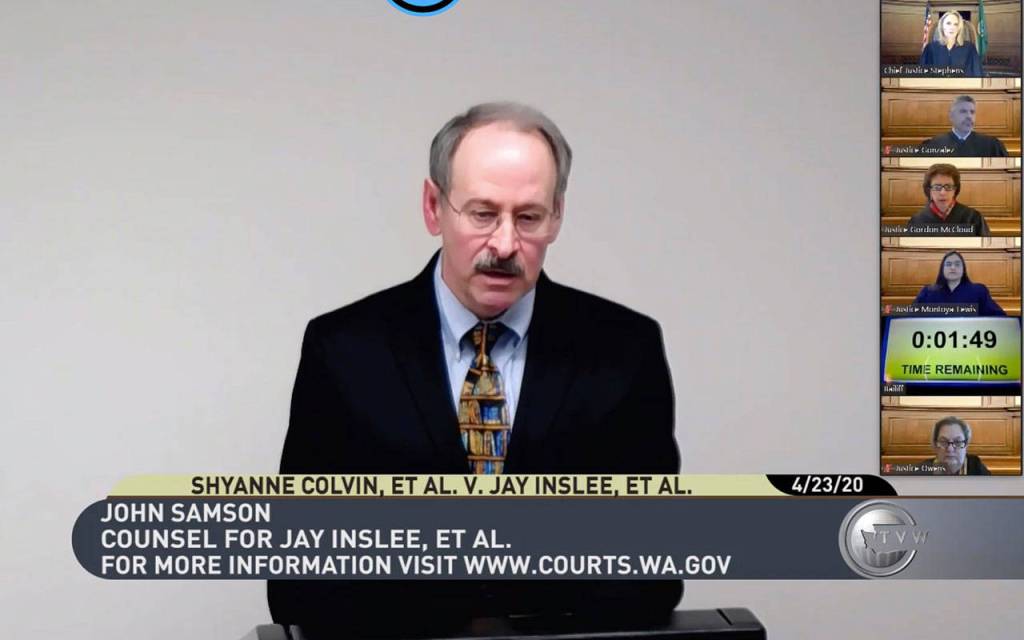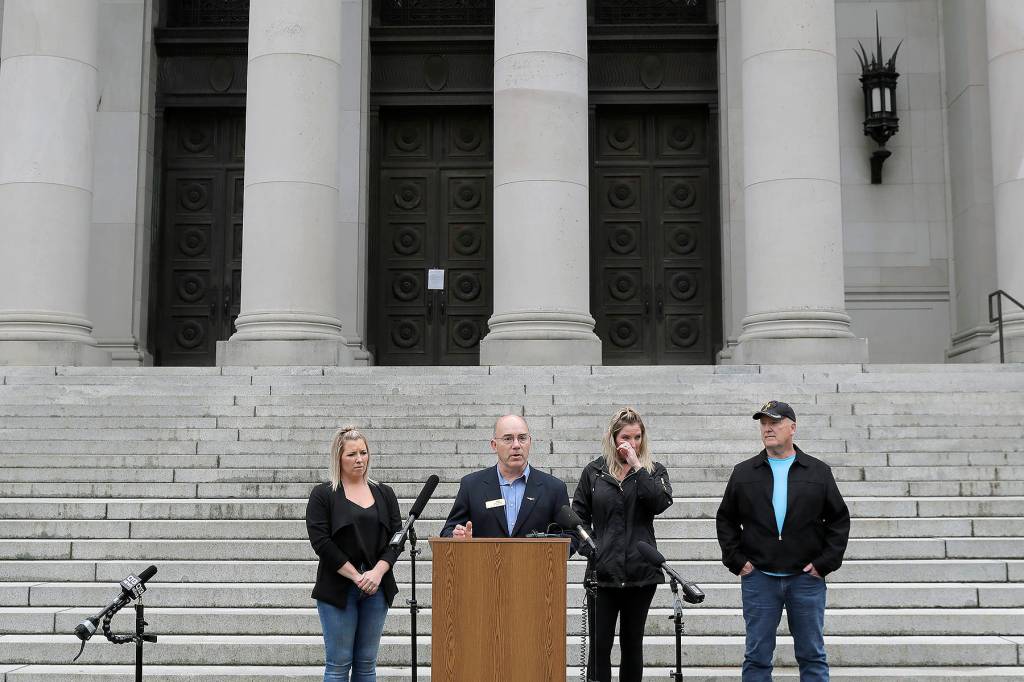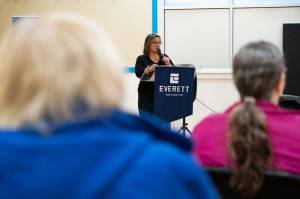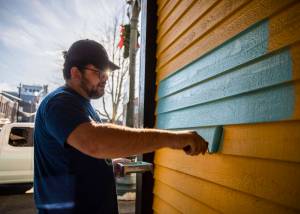State Supreme Court denies request to release more inmates
Published 12:10 pm Thursday, April 23, 2020





OLYMPIA — A divided state Supreme Court on Thursday swiftly denied a petition that sought the release of thousands of inmates from state prisons to better protect them from contracting COVID-19.
In a 5-4 decision, the court concluded inmates who filed the request failed to show the state was failing to address the COVID-19 risk or that the state’s actions “constitute deliberate indifference.”
Justice Debra Stephens signed the two-paragraph order for the majority. A full opinion is due later.
“We’re grateful for the Court’s careful review of this serious matter,” Gov. Jay Inslee said in a statement. “The Department of Corrections will continue to take all possible measures to care for the health and safety of incarcerated persons.”
Corrections officials said the ruling “recognized all of the hard work” that has been done, and that they will continue to follow guidance from the state Department of Health and federal Centers for Disease Control and Prevention.
The leader of the Washington Association of Sheriffs and Police Chiefs cheered the outcome.
“The mass release requested by Petitioners was excessive, overreaching, and without a statutory basis,” Executive Director Steve Strachan said in a statement. “It would have increased public safety concerns, exacerbated the trauma victims endured originally, and potentially led to avoidable new victimization.”
The ruling came hours after a hearing in which justices wrangled with whether the state is doing enough to protect prisoners from contracting COVID-19 — and if not, whether large-scale release of prisoners would be reasonable.
“We are asking for an extraordinary remedy to fit an extraordinary moment,” attorney Nicholas Straley of Columbia Legal Services, the organization representing the imprisoned petitioners, said during arguments Thursday morning.
In a first-ever hearing conducted through video conferencing, justices considered an emergency petition from five inmates who contended conditions behind bars did not allow for adequate social distancing. Nor, they argued, is there access to enough masks and sanitizer to defend against the potentially deadly coronavirus.
They wanted the high court to compel the governor and Secretary of Corrections Steve Sinclair to bolster health and safety by releasing many inmates older than 50; those with an underlying health issue including pregnancy or mental illness; and those with 18 months or less remaining on their sentences.
Serial killer Gary Ridgway and former death row inmates like Byron Scherf, who murdered Monroe corrections officer Jayme Biendl, are among those who fall into one or more of those categories. Under questioning from justices, Straley said he has never taken the position that everyone on the lists should be let out.
“Of course there are going to be situations where people should not be released,” he said.
Similarly, justices pressed Straley on how, if the petition was granted, the state could carry out its requirement to notify victims. It is “absolutely essential” to notify victims, Straley said, noting the state is capable of working on reducing the population while making mandated notifications.
As of Thursday, 12 inmates and seven staff members at the Monroe Correctional Complex had tested positive for COVID-19. Overall, 26 Department of Corrections staff members have tested positive and there are 104 inmates in isolation and 1,002 in quarantine, according to the agency website.
Only by thinning the prison population, the petitioners argued, can the state assure it is upholding its constitutional duty to adequately protect the health of inmates.
The Supreme Court conducted Thursday’s hearing via video conference in accordance with the state’s stay-home order.
“COVID-19 is so dangerous and so contagious it is actually illegal for us to be in the same room this morning,” Straley said. “Overcrowding is always unpleasant. Sometimes it’s unconstitutional. But in this case it could be deadly.”
Assistant Attorney General John Samson countered that the governor and the corrections agency have acted aggressively in response to the pandemic. Since April 17, hundreds of inmates have been freed to ease crowding as the department strives “as much as possible” to provide six-foot distancing, he said. The early releases stemmed from an April 10 edict from the Supreme Court, following an outbreak at the Monroe prison, the first and only state facility where inmates have tested positive for COVID-19.
“That reduction should be enough,” Samson said. “If it becomes necessary to release more individuals (the department) will do that.”
Samson argued that releasing thousands more immediately would endanger the safety of the public. And some prisoners who lack access to medical care or stable housing would be at greater risk of contracting the virus.
The inmate petition did not call for a specific number of incarcerated people to be released, though documents submitted by the Department of Corrections show there were 11,715 people in one or more of the categories. Of the total, 7,893 are within 18 months of their release date, and of those, 4,496 have a sentence requiring that victims receive a 30-day notification and 3,397 do not.
In the one-hour hearing, justices sought greater precision of what is the right sized prison population. They wanted Straley to tell them how many needed to be released to satisfy their concerns.
“What is constitutionally compelled is to operate a safe prison system,” he said. “Can I tell you today that number? No.”
A lack of testing means “there is no way the Department of Corrections has any idea of how prevalent COVID is,” he said.
Justice Barbara Madsen questioned if releasing inmates is the only option.
“People are beginning to resume business again,” she said, specifically citing the Boeing Co.’s reopening of factories where thousands of people work. “Whether that is good or bad, right or wrong, I don’t know. But it does tell us there are other ways that companies are handling the need to get on with business. And certainly the prisons need to get on with the business of rehabilitation.
“Asking us to order (release) as the option seems to me perhaps to counter what other business and establishments are doing in the community as we speak,” she said.
Straley responded that it’s “utterly unknown” if Boeing’s actions will protect workers. A critical measure is whether social distancing can be achieved, which, he said, it cannot in prisons.
Justice Raquel Montoya-Lewis pressed Samson on the meaning of the state’s pledge to provide as much social distancing as practical and reasonable. That seems to create a “significant loophole,” she said, asking him what the Department of Corrections can commit to in terms of providing safe spacing inside cells and facilities.
“I cannot guarantee and I don’t think the department can guarantee that every single prison cell is going to provide six feet of distance” in sleeping quarters, Samson said. But that’s not constitutionally required, he said.
The department will “as much as possible strive to provide six-foot distancing for every prisoner.”
Chief Justice Debra Stephens expressed hesitancy over telling the governor and corrections agency what to do, as the inmates’ petition seeks. It would make the judicial branch appear to be “a super power” relative to the executive branch.
Stephens signed the majority opinion.
Since April 10, the state has turned in two reports documenting specific steps taken to improve social distancing and sanitation.
Four justices — Steven Gonzalez, Sheryl Gordon McCloud, Montoya-Lewis and Mary Yu — noted in a dissenting opinion that the state’s reports had shown both substantial progress and continuing problems at Department of Corrections facilities.
”Also,” the dissenters wrote, “we would have accepted the State’s offer to provide an updated report in two weeks on the State’s continuing progress to take all necessary steps to protect the health and safety of DOC inmates in response to the COVID-19 outbreak, including their ongoing plans for implementation, before deciding whether the Petitioners’ claims have merit.”
Prior to the hearing, opponents of the governor’s previous actions — freeing roughly 1,000 prisoners — gathered outside the Temple of Justice to voice opposition to further releases.
State Sen. Keith Wagoner, R-Sedro-Woolley, whose district includes the Monroe Correctional Complex, was joined by several Republican lawmakers, including Sen. Ron Muzzall, R-Oak Harbor. Also attending were family members of a woman murdered by Isaac Zamora, who is now serving a life sentence.
“We want to let people know that some organizations and individuals like Columbia Legal Services are using the COVID chaos to promote their ideological desire to let them all out,” Wagoner said. “The science doesn’t say they are moving them to a safer place. They are in a safe place now.”
When the decision came out, he said he was “thrilled that five of the justices ruled correctly,” though concerned it was that close.
“We have a narrow victory,” he said. “I think a lot of people are going to be relieved to hear that.”
Jerry Cornfield: 360-352-8623; jcornfield@herald net.com. Twitter: @dospueblos.
[documentcloud url=”http://www.documentcloud.org/documents/6876639-983178-Public-Order-Other-4-23-2020.html” responsive=true]

